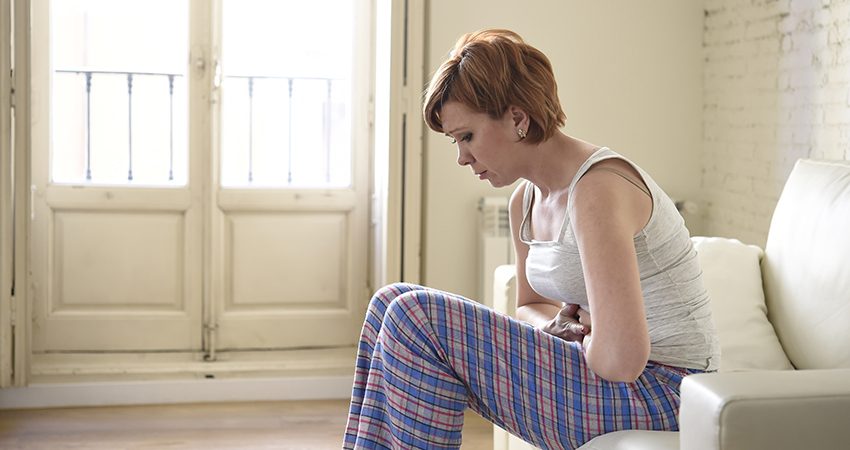Uterine fibroids are growths that develop just inside or outside of a woman’s uterus or womb. They are non-cancerous and develop from normal muscle tissue that starts growing abnormally to form a benign tumor. This very common condition affects many women after puberty and usually over the age of 30. Uterine fibroids may be small enough that a woman does not even realize they are there, or they can grow into painful, large tumors that affect everyday life.
Do Fibroids Make You Tired?
Uterine fibroids can cause great stress in a relationship in addition to being debilitating to women. The pain associated with fibroids can be unbearable, this paired with an enlarged uterus, lack of mobility and reduced energy can be heart wrenching. Add long, heavy menstrual periods that seem like they will never end and extreme pain during intercourse and it seems as if fibroids have taken over your life. Stress paired with interrupted sleep patterns forms a vicious cycle that leaves you tired both mentally and physically. Carrying around the extra weight and size of fibroids can also be stressful and place pain on your pelvis, just as if you are pregnant. The extra size and weight further inhibits your mobility to do simple tasks on a daily basis. The lack of energy alone is depressing when you are just too tired to accomplish everyday activities as you used to.
There is no need to experience all of the pain and stress associated with fibroids because a newer procedure can be life changing and gives you your old life back immediately. Learn all about uterine fibroids and the specific procedure to remove them.
Possible Factors of Uterine Fibroids
Women who have had children have a lower risk of getting fibroids. Women who experience their first menstruation before the age of 10 are much more likely to develop fibroids. Women who take birth control pills are less likely to develop uterine fibroids and history of fibroids in the family, such as a sister or mother, makes a woman more likely to have fibroids. The growth of fibroids depends on the female hormone estrogen, so they develop after puberty and may tend to shrink or disappear after menopause because of the decline of estrogen levels. Waiting for this time in life in the hopes painful fibroids shrink is not a good option for women.
Symptoms of Fibroids
Most of the uterine fibroids are small enough that women do not notice any signs; however, larger tumors have distinct symptoms that can be very uncomfortable. Menstrual periods can last seven days or longer and provide discomfort with extremely heavy bleeding. Fibroids can cause a feeling of fullness or bloating in the stomach or pelvis area with pain. Uterine fibroids can cause constipation and extreme pain with intercourse. A woman with fibroids may urinate frequently or have difficulty emptying her bladder. Backache and leg pain can also signal that uterine fibroids are present in a woman.
Uterine Fibroid Complications
Prolonged menstrual periods accompanied by heavy bleeding can cause a lack of iron, resulting in anemia in a woman with uterine fibroids. Anemia causes great tiredness and a lack of energy. It persists by not producing red blood cells at a rate fast enough to carry oxygen to body tissues.
A uterine fibroid can cause great pain if it hangs by a stalk and twists, thereby cutting of the blood supply from the fibroid.
Uterine fibroids can grow so large that your uterus expands to the size of a full term pregnancy and cause pressure on the uterus, making it hard to go about everyday activities. It can also cause backaches and restricts your movements.
Fibroids can cause pelvic pain that is constant or occasional and it can range from mild to extreme. It may be worse with intercourse or bowel movements.
Diagnosis of Uterine Fibroids
The moderate and larger sized fibroids can often be felt by a doctor in a manual pelvic exam. Imaging tests can confirm the presence. An ultrasound probe inserted into the vagina or passed over the pelvis on the abdomen can confirm uterine fibroids as well as an MRI scanner.
Traditional Surgical Procedures
Traditionally, a hysterectomy was used to remove the entire uterus and the uterine fibroids in or around it. This procedure makes a woman unable to bear any children. A hysterectomy is a major surgery that requires a lot of time for recovery and often can have complications afterward.
An abdominal myomectomy is used to remove fibroids from a woman’s uterus. This surgery consists of a major abdominal surgery, which in turn can have complications of the incision and major downtime to recover.
Each of these types of major surgery require at least four days in the hospital and a long, 6-week recovery period.
Non-Surgical Approach
Uterine fibroid embolization is the best approach to remove fibroids. The patient does not need general anesthesia in an endovascular procedure. The procedure includes local anesthesia to the groin and making a tiny nick in the upper thigh. A catheter is inserted into the uterine arteries on each side of the groin that supply blood to the fibroid. Tiny particles are injected into each one that block the blood flow to the fibroid and cause it to shrink. This minimally invasive procedure allows women to return to work and normal daily activities within only one week.
The advantages of embolization over a major surgery alone make it one of the best procedures for uterine fibroids. It is a safe, simple procedure that only takes about 30 minutes with no hospital stay. You have less recovery time, no recurrence of fibroids and you keep your fertility so you can continue to have children. The best advantage is immediate relief from pain, anemia, heavy cycles and fatigue.
You can return to your old self immediately and start living your life on your terms instead of living a life on your fibroids terms. Call (866) 479-1523 today!


